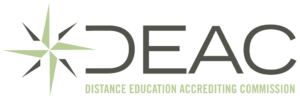The rapid advancement of technology has transformed the educational landscape, offering learners more options than ever before. With the rise of online education, the choice between pursuing a traditional brick-and-mortar education or opting for online learning has become a crucial consideration for students. In this blog, we will explore the key factors to help you determine which mode of education, online or traditional, is the right fit for you.
Flexibility and Convenience
One of the primary advantages of online education is the flexibility it offers. Online courses provide the convenience of studying at your own pace and location. If you have other commitments such as work or family responsibilities, online education allows you to fit your studies into your schedule. On the other hand, traditional education requires adherence to a fixed schedule and location, with specific class times and campus attendance. Consider your lifestyle and time management skills when deciding which mode of education aligns better with your needs.
Learning Style and Personal Preferences
Reflect on your preferred learning style and how it aligns with each mode of education. Online education typically involves self-directed learning, with a greater emphasis on reading, online discussions, and multimedia resources. If you are self-motivated, enjoy independent learning, and are comfortable with technology, online education may suit your learning style. However, if you thrive in face-to-face interactions, benefit from real-time discussions, and prefer hands-on activities, traditional education may be a better fit.
Support and Interaction
Consider the level of support and interaction you desire from your educational experience. Traditional education provides immediate access to instructors and classmates, fostering direct interaction, immediate feedback, and collaborative learning opportunities. In contrast, online education relies on digital platforms for communication, which may require self-initiative and proactive engagement. Assess your preferred level of interaction and support when choosing between the two modes of education.
Resources and Networking Opportunities
Traditional education often offers access to extensive resources, such as libraries, laboratories, and physical campus facilities. It also provides opportunities for face-to-face networking, forming connections with professors, classmates, and alumni. Online education, however, offers its own set of resources, including digital libraries, multimedia content, and online communities. Consider the resources and networking opportunities that are essential for your educational and career goals.
Cost and Accessibility
The financial aspect is a critical factor to consider when deciding between online and traditional education. Online courses often come at a lower cost compared to traditional education, as they eliminate expenses associated with commuting, campus facilities, and other overheads. Additionally, online education can be more accessible for individuals who face geographical constraints or have limited mobility. Evaluate your budget and accessibility requirements to determine which option is more feasible for you.
Conclusion
Choosing between online education and traditional education is a highly individualized decision. Assess your priorities, preferences, and goals to determine which mode of education aligns best with your needs. Consider factors such as flexibility, learning style, support and interaction, resources, networking opportunities, cost, and accessibility. Remember that both online and traditional education have their own merits and limitations. Ultimately, selecting the right mode of education will contribute to a fulfilling and successful learning experience that sets you on the path to achieve your academic and career aspirations.













